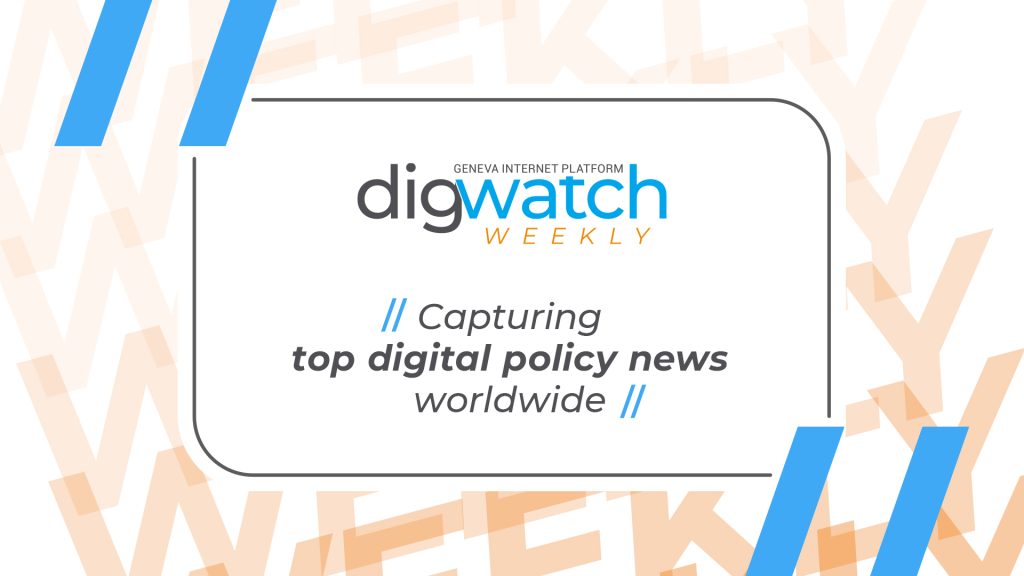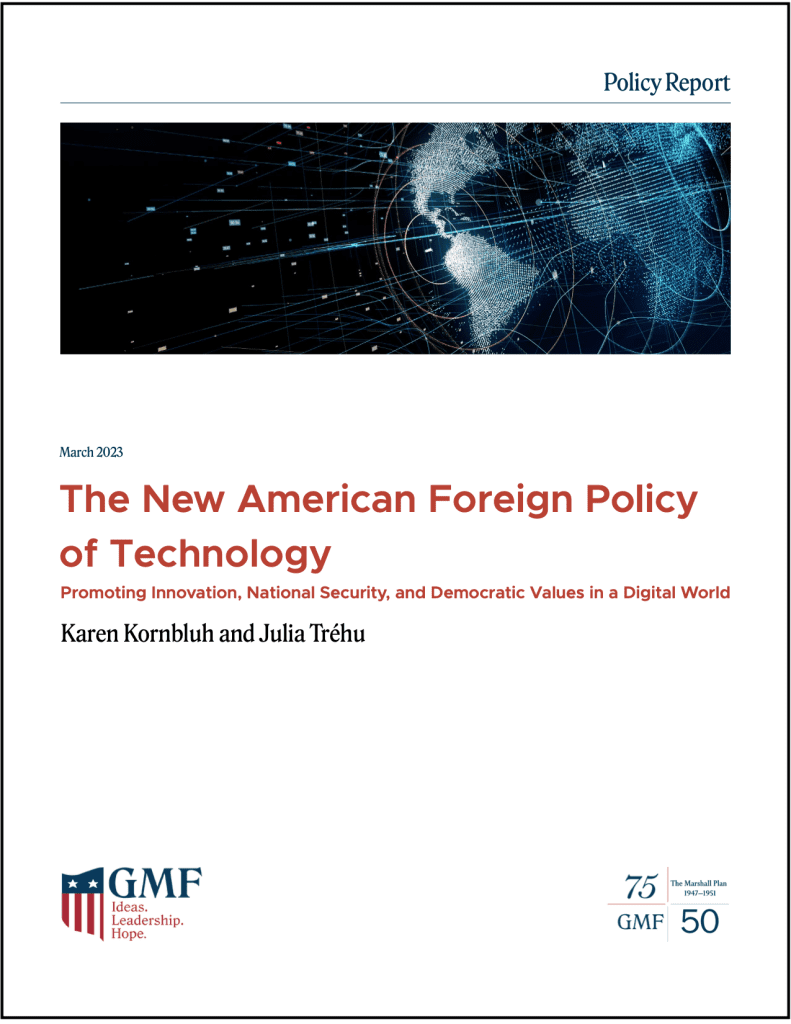
Dear all,
Amid all the excitement over the release of GPT-4 (our highlight in today’s digest), the major actors in digital policy seemed to be very focused on their geopolitical priorities and their quest for digital supremacy. In other news, TikTok has been banned in more regions, while the inventor of AI machine DABUS continues his legal fight in courts across the world.
Let’s get started
Stephanie and the Digital Watch team
// HIGHLIGHT //
GPT-4 is (already) here
As soon as we got used to the idea that a search bot would be revolutionising the way we write, learn, and work, along came a new update from ChatGPT inventor OpenAI: GPT-4, which leverages more data and computation than the previous models (you’ll have to take the company’s word for it).
During roughly the same period (that is, last week), Google announced a range of AI tools for its email, collaboration, and cloud software, while Microsoft announced Copilot, which will overhaul its entire line-up of Office applications. China’s Baidu joined the ranks with its Ernie bot.
The incessant announcements of new releases tell us we’re in for an eventful year: finding out the impressive things generative AI can do (my favourite’s below); discovering ways in which it can automate our work (but hopefully not our thinking); and witnessing how it’s changing the face of marketing and educational methodologies.
A new product or software release will push the boundaries at each turn. In a way, it will be like the mobile phone business: You think you own the latest model until you realise the company announced a new version yesterday.

What are a couple of meals I can make with this?
Based on the items visible in the fridge, here are a couple of meal ideas:
1) Yogurt parfait: Layer yogurt, strawberries, and blueberries in a bowl or jar. Top with honey or nuts for added texture and flavor.
2) Carrot and hummus wrap: Spread hummus on a tortilla or wrap. Top with shredded carrots and any other desired veggies. Roll up and enjoy!
Source: NYTimes.com
Limiting the catch-up process
The speed at which things are moving means that the typically slow-moving regulatory environment will have an even tougher time catching up. Two areas in which policymakers will need to move swiftly are enacting regulations for the safe, transparent, and ethical use of AI and updating intellectual property rules given the large amounts of copyrighted data these systems are using.
The biggest challenge for policymakers is how to future-proof these regulations, that is, how to introduce flexible safeguards that keep the door open for innovation and still apply to emerging technologies. Rather than a complete rewrite, such regulations would (hopefully) only need to be adapted. A good example is the EU’s proposed AI Act, which will create a process for self-certification and oversight, based on the level of risk of an AI system.
Future-proofing the regulations also helps create an environment where innovation is encouraged and supported, and consumers are protected. In turn, this fosters an environment of trust, which is so badly needed. There has never been a more important time for speedy tech regulation than now.
// TIKTOK //
More woes for TikTok
The UK government has banned the social media app from government phones. The Scottish Parliament is following suit by advising parliamentarians to remove the app from their devices.
In addition, New Zealand will ban TikTok on devices with access to the country’s parliamentary network. As for the European Parliament, the ban announced earlier in March extends to all data networks managed by the institution, including the Wi-Fi network accessible to visitors.
The reasons. It’s the same chorus: data privacy and cybersecurity risks. Because TikTok’s parent company ByteDance is Chinese, governments worry that the Chinese government can access users’ data through ByteDance.
A ban or a split. As we wrote last week, TikTok’s plans to develop tighter privacy standards and open new data centres in Europe might not be enough to appease policymakers in the EU. Things are looking much worse for TikTok in the USA, where new regulations that would empower the government to ban the app are looming. Media reports are now saying that TikTok is considering splitting from ByteDance if everything else fails. This would surely prove TikTok’s resolve, if it comes to that.
// GEOPOLITICS //
Digitalisation a priority for EU’s long-term competitiveness
Digitalisation is one of the main priorities for the EU’s future, the European Commission said in its communication to mark the 30th anniversary of the Single Market. The commission identified nine priorities for securing long-term competitiveness.
The EU wants a broader take-up of digital tools across the economy, and stronger tech sectors, including AI, quantum computing, microelectronics, web 4.0, virtual reality and digital twins, and cybersecurity.
China’s president emphasises tech self-reliance
In his closing address at the first session of the 14th National People’s Congress last week, Chinese President Xi Jinping said that technology is a ‘strategic foundation for national development’, emphasising the need for the tech industry to be self-reliant.
The speech marked a significant moment in China’s history as it was Xi Jinping’s first address since he began his third term as president on 10 March.
China publishes white paper on law-based cyberspace governance
China’s State Council Information Office (SCIO) has released a white paper: China’s Law-Based Cyberspace Governance in the New Era. The first of its kind, the document recaps China’s laws and regulations related to the internet and enforcement.
In a press conference, SCIO Deputy director expressed China’s willingness to work with the international community in global governance processes and to engage in consultations with joint contributions.

Was this newsletter forwarded to you, and you’d like to see more?
// DIGITAL COOPERATION //
EU, Latin America, Caribbean partners launch EU-LAC Digital Alliance
There’s a new partnership in town: The European Union–Latin America and Caribbean Digital Alliance, which will focus on building digital infrastructures and promoting connectivity and innovation. The EU is making an initial contribution of €145 million to implement the alliance’s digital projects. A high-level EU-LAC summit is planned for July.
// E-ID //
EU’s draft eID directive goes to trilogue
The European Parliament has given its formal nod for negotiations on the new eID directive to start with the EU Council. The new rules for electronic identification and authentication – operated through a personal digital wallet on a mobile phone – will give citizens and businesses digital access to the main public services across the EU.
The inter-institutional discussions, also known as trilogues, will start immediately. The Swedish presidency of the EU council is hoping to reach a political agreement by June, before it passes the baton to Spain.
The work ahead. The parliament will base its negotiations on the amendments adopted in February by the Industry, Research and Energy Committee (ITRE); the council adopted its common position in December 2022.
The two institutions need to find common ground on privacy safeguards (activists will be insisting on COVID-19 certificate-like safeguards), the use of pseudonyms, the obligations imposed on companies who will want access to digital IDs, and whether the wallets will be voluntary or obligatory.
// AI //
Patent battle for AI machine’s inventions continues
The quest of American computer scientist Stephen Thaler to have his AI machine DABUS declared a patent-holder for its inventions continues.
This time, Thaler will try to convince the US Supreme Court that the US Patent Act doesn’t restrict the term inventor to human beings only. If the US Supreme Court reverses lower courts’ decisions, it could open a door to a new system in which AI machines could be declared patented inventors of their creations.
The UK Supreme Court is hearing a similar case. Thaler’s attempts have failed in several countries, including the EU and Australia, but a patent was granted in South Africa.
// ICANN //
ICANN comes one step closer to launching a new round of gTLDs
ICANN, the organisation responsible for managing the internet’s address book, is getting ready to launch a new gTLDs round. This comes after the ICANN Board approved the majority of recommendations (see Section A of this scorecard) made by a working group focused on preparing the procedural rules.
gTLDs, short for generic top-level domains, are found in the last part of a website address, such as .com or .org. Experts say the entire process could take more than a year before applicants can actually submit a request. The last time a new round was issued was in 2012.

// CONTENT POLICY //
Trump’s back. Former US President Donald Trump has made a comeback on social media with a solitary ‘I’M BACK’ message accompanied by an old video announcing his election in 2016, which fades to a ‘Trump 2024’ screen. We’re wondering what he’ll say next.
20–23 March: Mozilla’s festival for activists returns in virtual format. It will bring people together ‘to better our digital landscape, build transformative systems, and sustain momentum within our community towards positive human and digital rights progress’.
21 March: The DC Blockchain Summit 2023, hosted by the Chamber of Digital Commerce in Washington DC, will gather policymakers, entrepreneurs, business leaders, investors, and other experts to discuss regulatory trends, the latest innovations, and issues in the blockchain industry.
21 March: The International Day for the Elimination of Racial Discrimination
23 March: TikTok’s CEO will testify before the US House of Representatives Energy and Commerce Committee.
25–31 March: The 116th meeting of the Internet Engineering Task Force (IETF) takes place in Yokohama, Japan and online.

Policy report: The New American Foreign Policy of Technology
A new report by the US German Marshall Fund argues that the tech challenges of the 21st century can’t be solved with the old 20th-century system. Rather, the USA needs a new digital foreign policy. The digital foreign policy must include three key parts: (a) a digital policy lab for national policymaking and partnerships; (b) a technology task force for deepening cooperation among like-minded countries in supply chains (such as semiconductors); (c) global promotion of the US Declaration for the Future of the Internet. Full text.

Opinion: Regulatory first movers
Former chairperson of the US Federal Communications Commission Tom Wheeler – remembered principally for the 2015 Open Internet Order that established strong net neutrality rules in the USA – has written about the regulatory approaches of the EU, UK, and USA. The title of his article sums up the difference between the three players: ‘The UK and EU establish positions as regulatory first movers while the US watches’. Read here.
Was this newsletter forwarded to you, and you’d like to see more?

